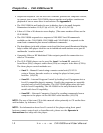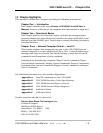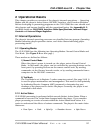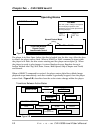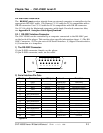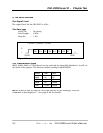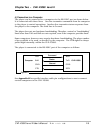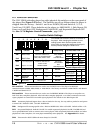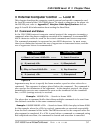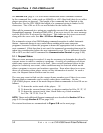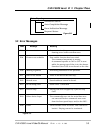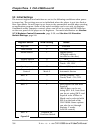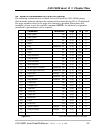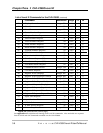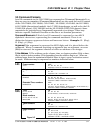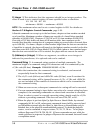
3 External Computer Control — Level III
This chapter describes the computer control protocol and specific commands used
for Level III control of the CLD-V5000 player. To attach a computer to the player via
the RS-232 port, refer to
Appendix C, Interface Cable Specifications. and see
page 2-4 and 2-6 for information about setting the Baud Rate.
3.1 Command and Status
In the CLD-V5000 external computer control protocol, the computer transmits a
command; when the player completes execution of the command, it returns an ÒRÓ.
ASCII character codes are used for the actual commands and status responses.
The command mnemonic is expressed as two ASCII characters. In most cases,
there is no distinction between the use of uppercase or lowercase letters, and the
use of uppercase letters is recommended.
Arguments may be set to specify the frame number, speed or other values for a
command. The argument is always placed before the command. The command is
also used as the terminator of the argument. In the simplest protocol, the player
immediately executes one command as soon as the terminator of the command
line, a <CR> (carriage return), is received.
Example: 1000SE<CR> : Search to frame 1000.
The player has a command buffer that allows multiple commands to be sent from
the external controller in the same command string.
Example: 1000SE 2000PL <CR> : Search to frame 1000, then play to frame 2000.
In this example, when the <CR> is received, commands are executed sequentially
from the first command of the buffer. The ÒRÓ is returned to the computer after the
play segment is completed. If a <CR> is sent before a command or command string
has completed execution, the command is cleared and execution is cancelled.
CLD-V5000 Level III ¥ Chapter Three
CLD-V5000 Level III UserÕs Manual TP 121 v. 1.0 ¥ 1/96
3-1
5) ÒPlay to Frame 2000Ó<CR> ->->-> 6) Play Execution
4.) R (received) <CR> <-<-<- 3) ÒCompletionÓ
8.) R (received) <CR> <-<-<- 7) ÒCompletionÓ
Computer
LaserDisc Player
1) ÒSearch to Frame 1000Ó<CR> ->->->- 2) Search Execution
Figure 3-A



